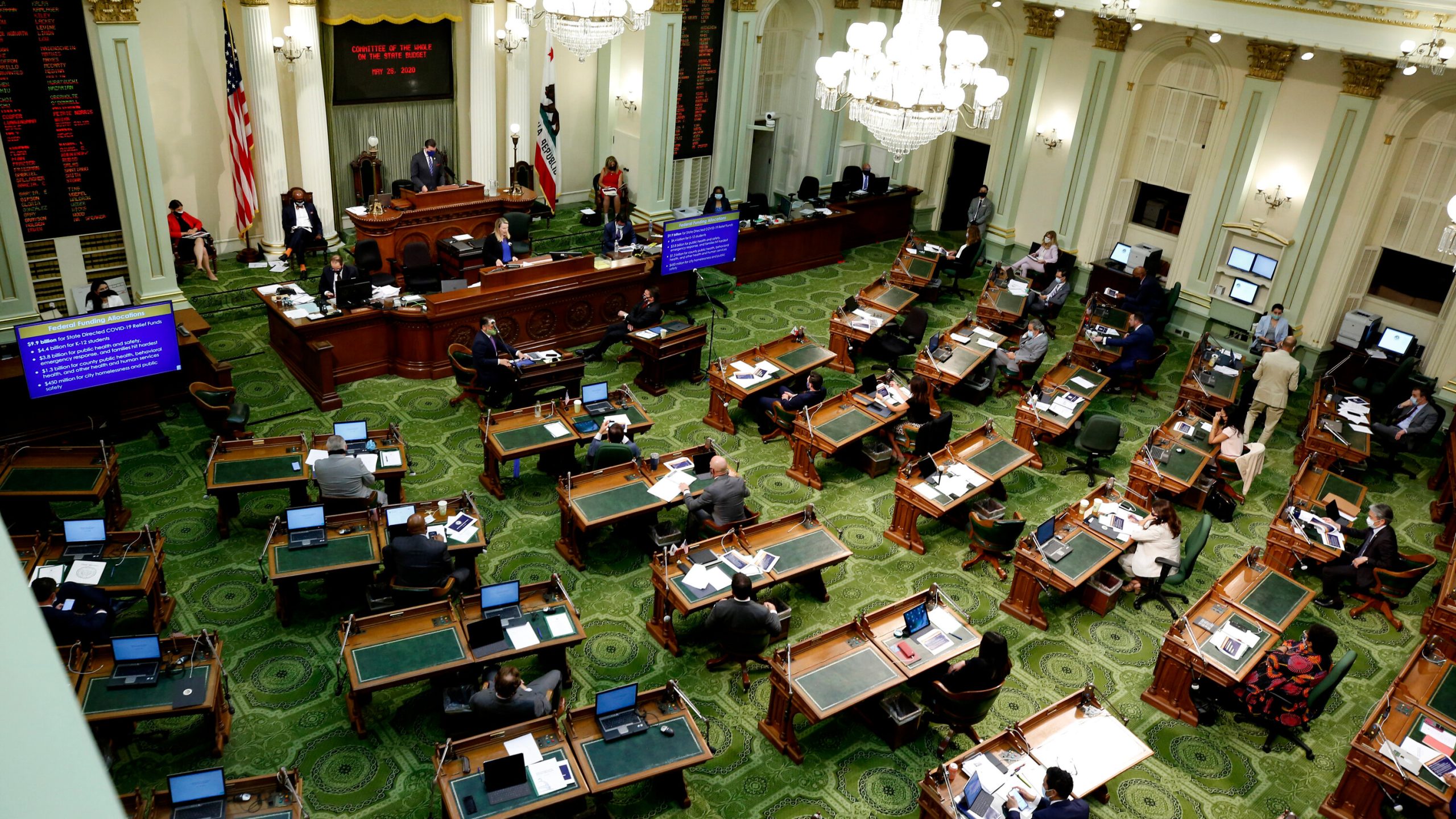California is considering spending $12 million on reparations-related legislation following Governor Gavin Newsom’s declaration of a budget emergency. This emergency declaration allows the state to tap into its rainy day funds to address the budget deficit.

At the low end, reparations bills with defined costs total approximately $4.3 million annually. However, the potential financial impact of other proposed programs could be much higher. These programs include reallocating savings from reduced prison capacity to gun violence reduction initiatives and making food a public health benefit for millions of Californians. The costs of these initiatives are estimated to range from hundreds of millions to tens of billions of dollars per year, significantly increasing the state’s financial obligations.
A fiscal analysis by the Legislative Analyst’s Office (LAO) warns that the General Fund faces a structural deficit in the tens of billions of dollars over the next several fiscal years. This deficit complicates the funding of new programs.
Key bills under consideration include:
- SB 1050: Sponsored by Senator Steven Bradford, this bill mandates the Office of Legal Affairs to investigate racially motivated eminent domain cases and provide compensation or return property. The estimated cost is in the hundreds of millions of dollars. It has passed the Senate and is awaiting Assembly approval.
- AB 1929: This bill aims to expand access to career technical education for descendants of slaves through a grant program. It passed both legislative bodies at zero cost and awaits the governor’s signature.
- AB 3131: Proposes financial aid for career education in redlined communities, with an estimated one-time cost of $322,000. It has not yet passed either legislative body.
- ACA 7: Seeks to amend the state constitution to allow for programs that improve life expectancy, educational outcomes, or poverty alleviation for marginalized groups. The cost includes approximately $1 million for printing the amendment. It has passed the Assembly and awaits Senate approval.
- ACR 135: A no-cost declaration for state responsibility for slavery and discrimination. It has passed the Assembly and is in the Senate.
- AB 1815: Adds hairstyles like braids and locs to racial anti-discrimination protections. It passed the Assembly and is in the Senate.
- SB 3089: Calls for a state apology to African Americans for historical harms. It has passed the Assembly and is in the Senate.
- ACA 8: Proposes a constitutional amendment to abolish involuntary servitude in prisons. It would allow inmates to earn credits for voluntary work. Significant costs could arise if courts mandate minimum wage payments to inmates. It has passed and awaits voter approval.
- AB 1986: Requires the CDCR to list banned books for inmates online and allows the Inspector General to review bans. This no-cost bill passed the Assembly and is now in the Senate.
- AB 2064: Directs savings from reduced prison capacity to community-based gun violence prevention programs. Estimated costs are in the hundreds of millions of dollars annually. It has passed the Assembly and is going to the Senate.
- AB 1975: Proposes counting food as a Medi-Cal health benefit, costing an estimated $17.6 billion annually if 7 million Californians use the benefit. Half the cost would be covered by federal funding. It has passed the Assembly and faces a final Senate vote.
- SB 1089: Requires grocery and drug stores to give 60 days’ notice before closing. This no-cost bill must still pass the Assembly.
- AB 2862: Prioritizes licensing for descendants of African American slaves, though it may face constitutional challenges. This no-cost bill passed the Assembly and is now in the Senate.
California’s reparations-related legislation presents a significant financial challenge as the state grapples with a budget deficit. The potential costs of these initiatives highlight the complexity of addressing historical injustices while managing current fiscal responsibilities.